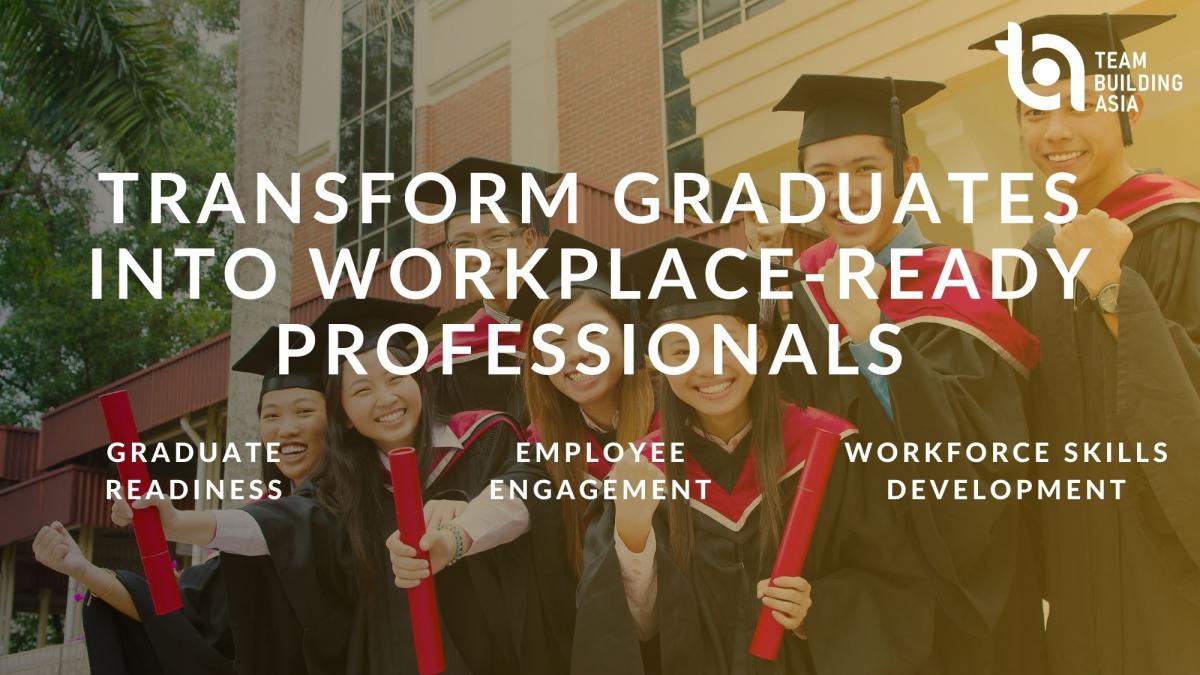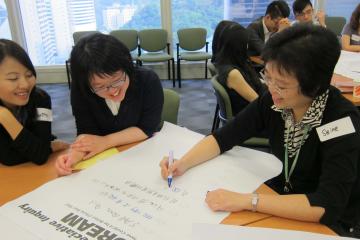In today's competitive job market, merely possessing a degree is often not enough for graduates to secure employment and thrive in the workforce. A staggering 40% of employers report that a lack of workplace readiness is a significant barrier when hiring recent graduates. The transition from classroom learning to workplace applications can be daunting, leaving graduates feeling ill-equipped for the challenges they face.
In this comprehensive guide, we will delve into the crucial elements that contribute to a graduate's readiness for the workforce, offering insights into training methods, employee engagement strategies, and the importance of team-building initiatives. By focusing on these areas, graduates can seamlessly integrate into their chosen fields, better serve their employers, and find their footing in their professional lives. Join us as we explore the missing link in education that transforms graduates into workplace-ready professionals.
Understanding Workplace Readiness
Workplace readiness encompasses a range of skills and experiences that prepare individuals for success in a professional environment. These skills go beyond technical knowledge; they include essential soft skills such as communication, teamwork, problem-solving, and critical thinking. The balance between hard skills acquired through education and soft skills cultivated through experience plays a crucial role in shaping a graduate's employability.
The Importance of Soft Skills
Employers across industries are increasingly prioritising soft skills in their hiring processes. According to research by LinkedIn, 57% of leaders believe soft skills are more important than hard skills.
- Communication Skills: The ability to convey ideas clearly and effectively is paramount. Graduates must learn to articulate their thoughts in both verbal and written forms, demonstrating clarity and confidence.
- Teamwork: Modern workplaces thrive on collaboration. Graduates who can work well in teams, respect diverse opinions, and navigate group dynamics are better positioned for success.
- Problem-Solving: A proactive attitude towards overcoming challenges can set a candidate apart. Cultivating the ability to analyse situations, evaluate options, and implement solutions is vital.
- Critical Thinking: Employers value candidates who can think independently and strategically. Graduates should be encouraged to ask questions, challenge assumptions, and propose innovative solutions.
The Role of Team Building in Graduate Development
Team-building activities are not just for established organisations; they provide a significant opportunity for students to gain necessary workplace skills while still in an educational setting. These exercises can foster interpersonal relationships, enhance communication skills, and cultivate a collaborative spirit among peers.
Incorporating Team-Building Activities into Education
- Workshops and Retreats: Schools can host team-building workshops that simulate workplace scenarios, allowing students to practise communication, teamwork, and conflict resolution in a controlled environment.
- Group Projects: Encouraging students to work in teams on projects helps them learn to navigate group dynamics and allocate responsibilities effectively.
- Volunteer Opportunities: Engaging students in community service with groups fosters teamwork while enhancing their sense of social responsibility.
Training and Development: The Path to Workplace Readiness
Training and development initiatives play a pivotal role in preparing graduates for their careers. Educational institutions can collaborate with companies to create internships, co-op programmes, and real-world projects that provide hands-on experience and exposure to workplace cultures.
Employee Engagement Strategies for Recent Graduates
Employee engagement strategies are essential not only for retaining talent but also for ensuring graduates feel supported in their early careers. Organisations need to foster an environment that encourages growth and continuous learning.
Implementing Effective Engagement Strategies
- Mentorship Programmes: Pairing recent graduates with seasoned employees can provide guidance and support, helping them navigate the complexities of their new roles.
- Feedback and Recognition: Organisations should establish regular feedback loops, allowing employees to understand their strengths and areas for improvement. Recognition of contributions fosters a sense of belonging and purpose.
- Career Development Opportunities: Providing pathways for advancement through training, certifications, and skill-building workshops can significantly enhance employee satisfaction and retention.
The Future of Graduate Employment
As the workforce evolves, educational systems must adapt to better prepare students for the realities of the job market. Embracing change and innovation in learning methodologies can bridge the gap between education and employment. Colleges and universities should foster partnerships with businesses to ensure the curriculum aligns with industry requirements, providing real-world relevance.
Where Do We Go from Here?
In an ever-changing professional landscape, the focus must shift towards creating a robust framework for graduate readiness. As a society, we need to rethink our educational strategies, placing greater emphasis on experiential learning and developmental pathways. By engaging in team-building exercises, fostering mentorship programmes, and encouraging continuous skill acquisition, we can ensure that graduates are not just academically qualified but also workplace-ready.
Key Takeaways
- Balance Hard and Soft Skills: Graduates must develop both sets of skills to be effective in the workplace.
- Utilise Team-Building Activities: Schools and organisations should implement team-building initiatives to enhance student connections and skill development.
- Focus on Internships: Practical experience in the form of internships can significantly impact a graduate's career trajectory.
- Cultivate Engagement Strategies: Organisations need to establish a supportive culture for recent graduates to thrive.




